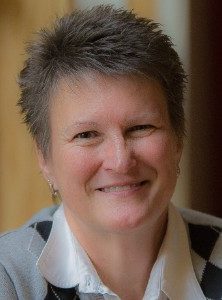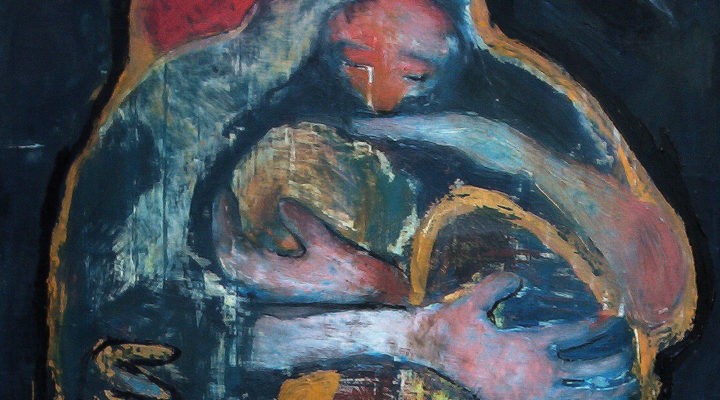Joe Biden is the next president of the United States. Despite allegations, falsehoods and lies, no election fraud affected the outcome of the race. That’s simply a fact.
I’m not sure what will become of evangelical Trump supporters now that their expectation of God’s intervention to give Trump the election has not been fulfilled and now that we won’t have outrageous, false and divisive tweets emanating from the White House all through the day and night. I imagine some will continue down the rabbit hole of QAnon and apocalyptic fanaticism, but I am hoping many will decide to make their way back to the central tenets of Christian faith — love, truth, justice, peace, hope and welcome.

Susan Shaw
As we move into the Biden-Harris era, I’ve been thinking a lot about how we invite Trump-supporting evangelicals back into the fold of the church.
Not so long ago, I was introduced to a song, “Hymn for the 81%.” It’s a song for evangelical Trump supporters from someone raised by them in the church. These lyrics stopped me in my tracks: “You said to love the lost, so I’m loving you now.”
Much to my surprise, that image immediately evoked incredible compassion for Trump-supporting evangelicals: They are lost.
I felt the impact of that word. In a single moment, all the feelings of my evangelical upbringing rushed upon me. I felt the emotions of a little 6-year-old girl walking the aisle while the congregation sang “Just as I Am.” I recalled all those Sunday school teachers and GA leaders and pastors and ministers of music teaching me that we were to love the lost, and I remember the mix of relief and joy and release of knowing “I once was lost, but now I’m found.”
All those memories and emotions swept over me like an avalanche as I realized that Trump-supporting evangelicals got lost somewhere along the way. They are lost. And that changes my responsibility toward them.
Feminist activist Loretta Ross says that rather than calling people out, we should be calling them in. Calling in, Ross says, is “a call out done with love.” Calling in “means you always keep a seat at the table for them if they come back.”
We have to leave a light on for them.
“At the core of the Christian story is the possibility of redemption.”
At the core of the Christian story is the possibility of redemption. No matter what we do, the Gospels tell us, we can repent and change our ways. No one is too far gone for the love of God to reach, to convict, to receive, to transform.
I think about what we heard in all those invitation hymns:
Softly and tenderly Jesus is calling
Calling for you and for me.
See, on the portals he’s waiting and watching,
Watching for you and for me.
Come home, come home,
Ye who are weary, come home.
Earnestly, tenderly Jesus is calling,
Calling, O sinner, come home.
Just as I am without one plea,
But that thy blood was shed for me,
And that thou bidd’st me come to thee,
O Lamb of God, I come! I come!
I’ve wandered far away from God.
Now I’m coming home.
The paths of sin too long I’ve trod.
Lord, I’m coming home.
Coming home, coming home,
Never more to roam.
Open wide thine arms of love.
Lord, I’m coming home.
Come home. That is the invitation we must offer evangelicals who supported Trump and who became lost in the mixture of Christian nationalism, white supremacy and authoritarianism that promised them it would bring in God’s community through the exercise of raw power.
“Our evangelistic task is to call people home, to call them in.”
Our prophetic task is to speak truth, denounce injustice and advocate for justice for all people. And, at the same time, our evangelistic task is to call people home, to call them in.
This story gets passed around a lot. I can’t find any verification that it’s true, but I think, true or not, it points to something important about calling people in. As the story goes, in a people group in Africa, when someone commits an unjust or illegal act, the community brings the perpetrator to the center of the village, and then all the community members come and tell this person all the good things this person has done. The community believes, as the story goes, that people are good but makes mistakes and forget who they really are. By telling them all the good they’ve done, the community seeks to remind them of who they are and reconcile them to the group.
Let’s call evangelical Trump supporters in. I’ll start:
- You taught me to love God with all my heart, soul, mind and strength and to love my neighbor as myself.
- You introduced me to a world that was much bigger than my hometown and told me to love them too.
- You told me to love my enemies.
- You taught me to love the Bible and read it because God could speak to me through its words.
- You told me I could be anything God called me to be.
- You taught me to give generously, without thought of return or reciprocation.
- You taught me to tell the truth.
- You found a way to accommodate difference when it was up close and personal and love people who were unlike you — the lesbian aunt, the agnostic friend, the weird kid, the deaf neighbor, the immigrant co-worker.
- You stopped to change a tire for a stranger; you took a meal to a bereaved family; you volunteered at a local shelter; you drove an older person of a different political party to vote; you served as a conversation partner in a language program for refugees; you visited sick people in the hospital; you helped Habitat for Humanity build a house; you started a clothes closet in the church basement.
People are much more than the worst thing they ever did. We have to make a way back for evangelical Trump supporters who may want to come home. I know that’s hard after everything we’ve witnessed the past four years.
“We have to make a way back for evangelical Trump supporters who may want to come home.”
If nothing else, though, the gospel is a story of lavish grace and welcome, a banquet set for a prodigal son, workers who came late to the field, a thief on a cross, all of those in the highways and hedges. In fact, we ourselves are recipients of this lavish grace, this love without limit, and, as my friend Paula Sheridan once said, “We are not the maître d at God’s table. We don’t get to decide who gets seated and who doesn’t.”
My Southern Baptist church did indeed tell me to love the lost. Our Trump-supporting evangelical siblings are lost. They followed a demagogue and lost sight of Jesus. If we want to follow Jesus, we have to make a way back for them; we have to seek them out like a lost coin or a lost sheep and call them in, “out of shameful failure and loss, into the glorious gain of (the) cross; out of unrest and arrogant pride, into (Christ’s) blessed will to abide; out of the depths of ruin untold, into the peace of (Christ’s) sheltering fold.”
This must be our response to the past four years: Come home. Come home.
Susan M. Shaw is professor of women, gender and sexuality studies at Oregon State University in Corvallis, Ore. She also is an ordained Baptist minister and holds master’s and doctoral degrees from Southern Baptist Theological Seminary. Her most recent book is Intersectional Theology: An Introductory Guide, co-authored with Grace Ji-Sun Kim.


